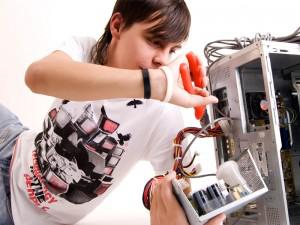
Regular maintenance is essential for keeping your computer running smoothly and preventing potential issues down the line. In this article, we'll discuss the importance of computer maintenance and provide some tips for keeping your computer in top condition.
Why is Regular Computer Maintenance Important?
Over time, computers can become sluggish and prone to issues such as crashes, freezes, and slowdowns. This is often due to a buildup of dust and debris inside the computer, outdated software, or an overloaded hard drive.
Regular maintenance can help to prevent these issues and keep your computer running smoothly. It can also extend the lifespan of your computer and save you money in the long run by reducing the need for expensive repairs or replacements.
Tips for Computer Maintenance
-
Keep Your Computer Clean
Dust and debris can build up inside your computer, causing it to overheat and potentially damaging components. To prevent this, it's important to keep your computer clean. Use compressed air to blow out any dust and debris from the inside of your computer, and wipe down the exterior with a soft, lint-free cloth.
-
Update Software and Drivers
Outdated software and drivers can cause compatibility issues and potentially leave your computer vulnerable to security threats. Make sure to regularly check for software and driver updates and install them as soon as they become available.
-
Delete Unnecessary Files
Over time, your computer's hard drive can become cluttered with unnecessary files and programs, which can slow down performance. Delete any files and programs that you no longer need to free up space on your hard drive.
-
Use Antivirus Software
Viruses and malware can cause serious damage to your computer and compromise your personal information. Use a reputable antivirus program and make sure to keep it up to date.
-
Backup Your Data
Regularly backing up your important files and data can help protect against data loss in the event of a hardware failure or other issue. Use an external hard drive or cloud-based storage to keep your data safe.
-
Defragment Your Hard Drive
Over time, files on your hard drive can become fragmented, causing slower performance. Defragmenting your hard drive can help to improve performance and speed up your computer.
-
Check Your Hardware
Regularly check your computer's hardware, including the fans, power supply, and cables, to make sure everything is in good working order. If you notice any issues, it's important to address them as soon as possible to prevent further damage.
In conclusion, regular computer maintenance is essential for keeping your computer running smoothly and preventing potential issues down the line. By following these tips, you can help to extend the lifespan of your computer and avoid costly repairs or replacements.


